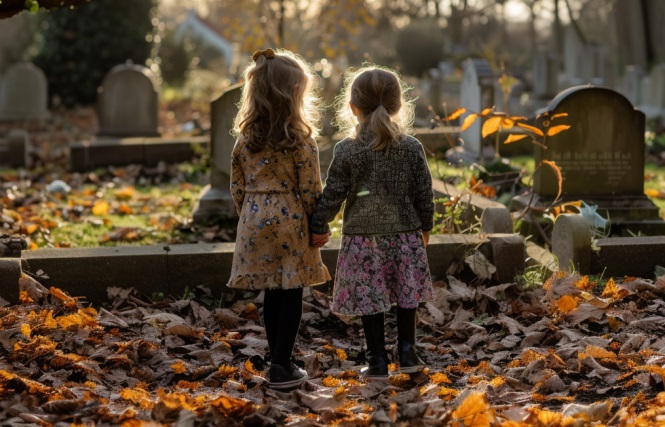How to Talk to Children About Cremation
Discussing the concept of cremation with children can be a daunting task, as it touches on sensitive themes of loss and the cycle of life. When faced with such a conversation, it’s crucial to approach it with care, honesty, and understanding, especially considering the perspectives of young minds. For families considering cremation services Independence, MO, finding the right words and the appropriate tone to discuss this topic delicately with children is essential. This article aims to offer helpful insights and guidance on how to talk to children about cremation in a way that is comforting, comprehensible, and sensitive to their emotional needs. Keep reading to learn more about navigating this important conversation with empathy and clarity.
Explaining Cremation: Age-Appropriate Conversations
When initiating a conversation about cremation with children, tailoring the discussion to be age-appropriate is fundamental. Young children, typically under the age of seven, may not fully grasp the concept of permanence associated with death, making it crucial to use simple, clear language. For this age group, explaining that the body stops working and that cremation is a way to say a final goodbye can be a gentle introduction.
For older children, who may have a more concrete understanding of death, providing a bit more detail can be helpful. Explaining that cremation is a method by which the body is turned into ashes in a special place can satisfy their curiosity and help them understand the process better.
Regardless of the child’s age, it’s crucial to emphasize that cremation is a common and respectful way to care for someone who has passed away, and that it’s okay to have mixed feelings about it. Encouraging questions and expressing your own feelings about the process can also create a supportive environment for the conversation. Remember, the goal is to provide comfort and reassurance while helping them understand cremation within the context of celebrating and remembering the person’s life.
Addressing Emotions: Supporting Children Through Grief
Addressing the emotional aspect of grief is paramount when supporting children through the process of understanding cremation and dealing with loss. Children express grief in various ways, and recognizing their emotions as valid is the first step in providing the support they need. It’s essential to be open and available for conversation, letting them know it’s okay to feel sad, confused, or even angry. Encouraging them to express their feelings, whether through talking, drawing, or other forms of expression, can help them process their emotions healthily.
Creating a safe space for these expressions allows children to navigate their grief journey at their own pace. Reassurances that it’s normal to miss the person and have a wide range of feelings about their passing and the cremation process can be comforting. Additionally, including them in memorial activities, or creating a specific ritual to remember the loved one, can aid in their emotional healing by making them feel like an active part of the process.
Equally important is modeling healthy grief behaviors yourself. Children often look to adults for cues on how to react and cope. Showing your emotions in a controlled manner can teach them that grieving is a natural, acceptable part of life. If necessary, don’t hesitate to seek support from school counselors, pediatricians, or child psychologists who can provide additional strategies and resources to support children through their grief.
Answering Questions: How to Handle Curiosity and Concerns
When children ask questions about cremation, their curiosity and concerns are often a way for them to understand and make sense of their feelings. It’s important to create an open environment where they feel comfortable asking questions. Listen attentively to their inquiries and respond with honesty, using language that matches their developmental level. Avoiding overly complex explanations can help prevent misunderstanding and further curiosity wrapped in anxiety.
If you’re unsure about how to answer a specific question, it’s okay to admit it. You can use this as an opportunity to explore the answers together, which can be a reassuring process that shows them it’s alright not to have all the answers. For more complex or philosophical questions about life and death, it’s beneficial to share your beliefs while acknowledging that others might think differently, thus fostering an open-minded perspective.
It’s also important to address any misconceptions or fears they may have about the cremation process. Children’s imaginations can often lead them to visualize scenarios far scarier than reality, so clarifying any misunderstandings with gentle explanations can alleviate unwarranted fears.
Reassurance is key during these conversations. Remind them that their loved one is not in pain and that cremation is just one way to honor and say goodbye to those we have lost. Encouraging them to keep asking questions as they think of them reinforces that you are there for support, making the entire process less intimidating and more understandable.
Concluding this sensitive topic, it’s evident that talking to children about cremation requires a thoughtful, compassionate approach that respects their feelings and curiosity. By fostering open communication, addressing their emotions, and patiently answering their questions, we guide them through their grief in a healthy, supportive way. If you find yourself navigating these conversations and seeking additional support or information, Heartland Cremation & Burial Society is here to help. With our experienced team, we offer cremation services Independence, MO, providing the resources and understanding needed during these challenging times. We invite you to reach out to us, ensuring you and your family are supported every step of the way in honoring your loved one’s memory.


